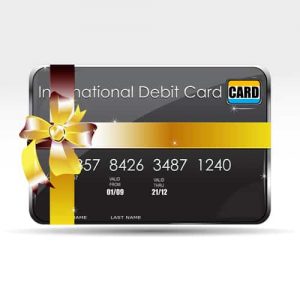 Whether I’m giving computer advice to someone or trying to help them keep their website protected, I always stress one thing. Security.
Whether I’m giving computer advice to someone or trying to help them keep their website protected, I always stress one thing. Security.
Keeping your computer and website secure should always be something that is on your mind. Why? Because there are people out there that would love nothing more than to exploit them for their own purposes. It doesn’t matter if you are rich or poor. If you have a computer or website? They want what you have.
Here are some tips to help you to keep them out, and keep your digital world safe.
- Use an anti-virus program. Scan regularly.
- Keep your computer and programs up to date.
- Always use strong passwords and do not repeat them.
- Avoid using unsecured wifi when travelling.
- Only share your login information with people that absolutely need to know it.
Anti-Virus Programs
When fixing computers, the number one thing I discovered was a lack of an anti-virus program. Going on the internet without having anti-virus is akin to always leaving the doors on your house wide open. It’s not only a bad idea, it’s just asking for trouble.
Anti-virus programs do not have to cost an arm and a leg. In fact, there are many great options available that are absolutely free. That being the case, there really is no reason you should go without security software.
Some free options:
Note that you should only use ONE of the above programs. More is not better in this case. It will likely slow your computer to a crawl and cause conflicts that could actually make your anti-virus program fail to do its job.
A very good addition to whatever anti-virus program you select is Malwarebytes. The free version does not actively scan or update, but if you do these things manually it can pick up malware that normal anti-virus programs often miss.
Keep Your Computer And Programs Up To Date
This is extremely important, especially if you run Windows. Microsoft releases updates regularly to address various exploits that are discovered over time. If you do not update your computer, you are ‘leaving your doors open’. An anti-virus program might help mitigate the damage, but it is far better to have all bases covered.
Use Strong Passwords
If you use a weak password you are just begging to be compromised. One of the tools hackers use are scripts to launch ‘Dictionary Attacks‘ on various accounts and websites. In layman’s terms, they try everything in the book to see if there is something in there you are using for your password.
So let’s see how strong your passwords are, shall we? Mosey on over to HowSecureIsMyPassword.Net and run a couple of your passwords through their test utility. It will tell you how secure your passwords are, or aren’t, and give you some pointers on making them stronger.
You should also strongly consider using a quality password manager. This will go a long way towards protecting your online data.
You wouldn’t gift wrap your credit/debit cards and hand them over to a thieving stranger, would you? Using a strong password will help keep your financial data out of the hands of crooks, making for a less profitable payday.
Do Not Use Unsecured WiFi
Using insecure, e.g. ‘public’ wifi is not a good idea. That nice looking fellow sitting right next to you might just be watching everything you do on their OWN screen. They can harvest login details and get all kinds of information you didn’t even realize was possible. It’s not hard to do either.
There is a very good article on the PC World website that shows some of what can be seen by remote computers. Scary stuff, for sure.
Do Not Share Login Information With Others
This falls under the ‘common sense’ category. Unless you are working with someone who you know very well, or a reputable business (like MidState Design), do NOT share your login credentials with them.
Another important thing to remember is to log out whenever you are using a computer that is accessible to others. Again, common sense.
Final Note
While nothing can provide 100% online security, following the steps above will greatly improve your odds of having safe travels on the internet. If you do not follow these guidelines you will likely find yourself paying for it later.
An ounce of prevention…..
~ Corey


